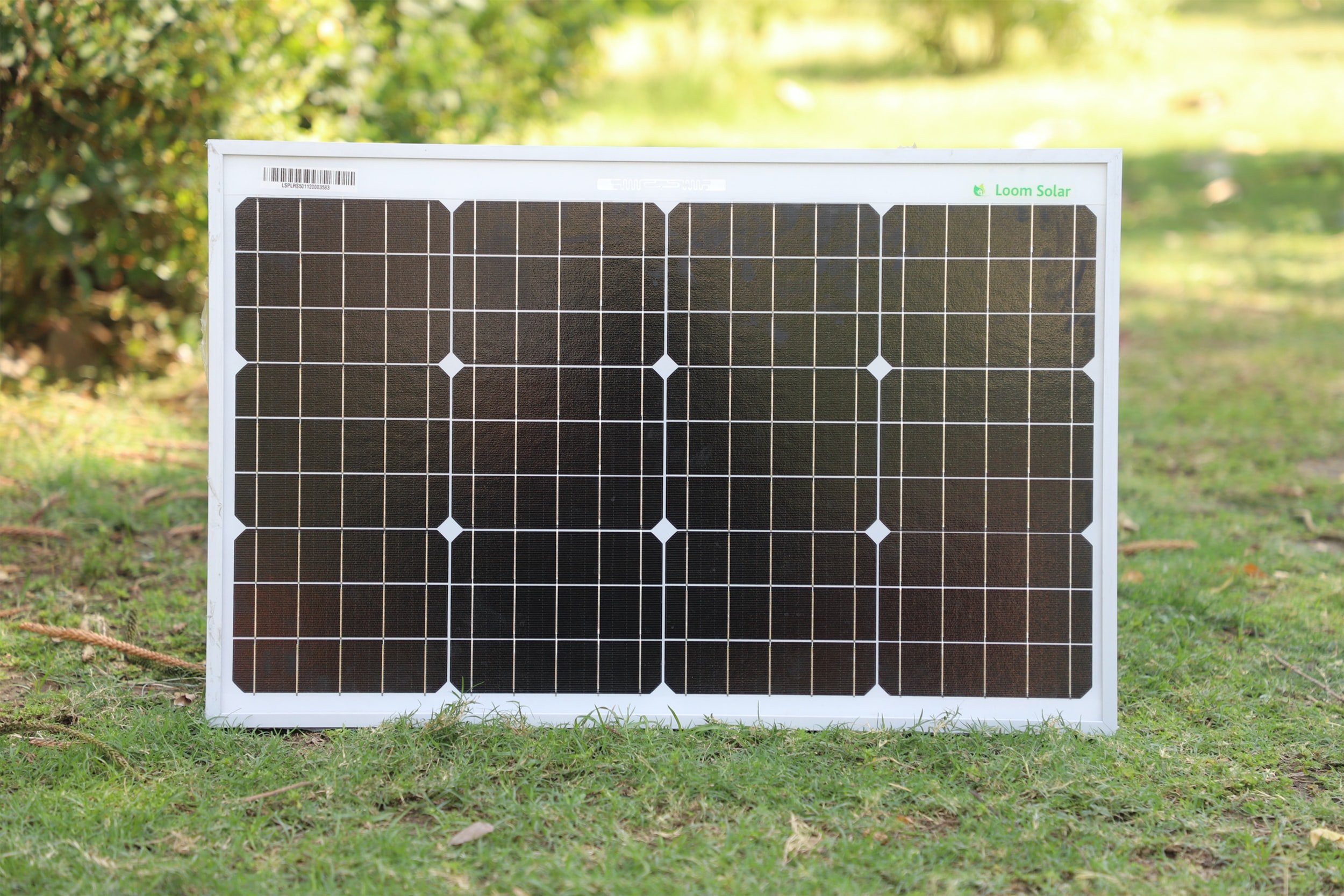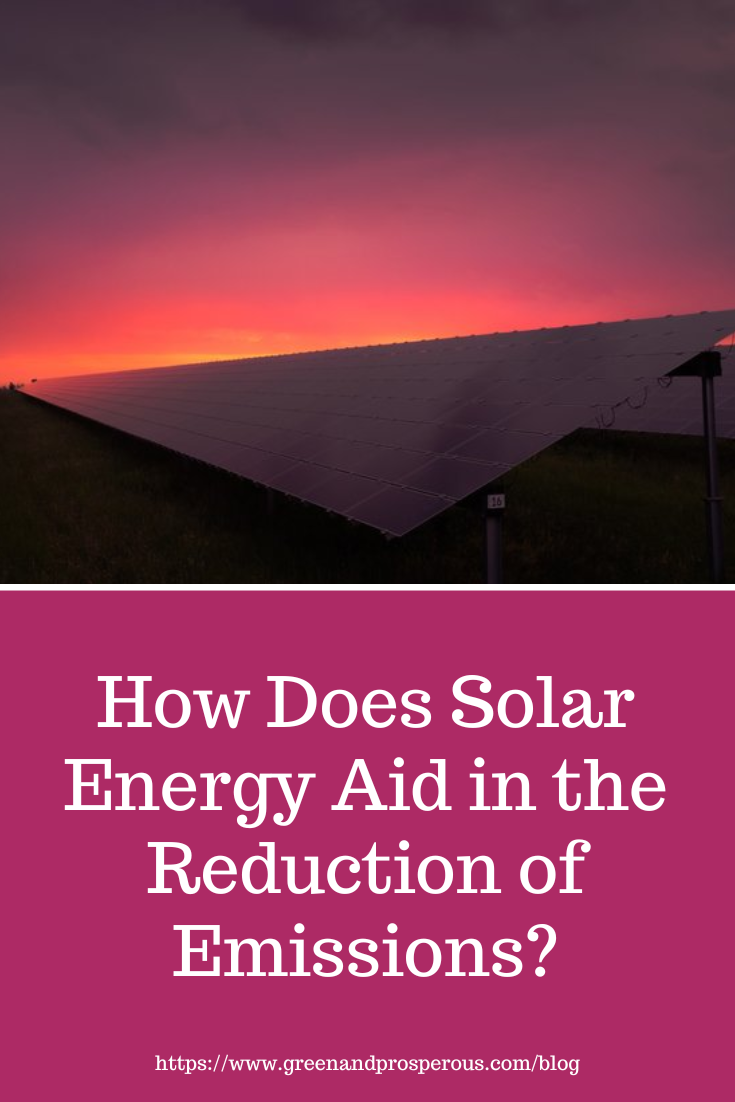How Does Solar Energy Aid in the Reduction of Emissions?
/
Guest post by Chris Jackson
There is a growing need for more energy in light of recent social and economic progress. We are all dependent on energy to fulfill our day-to-day requirements. As a direct result of this increased demand, there has been a rise in the use of fossil fuels, which has led to an increase in the number of carbon emissions. Consequently, increased demand has resulted in an overall rise in global temperatures.
The generation of electricity to meet growing global demand for energy releases large amounts of greenhouse gases into the atmosphere, and as a result, concentrations of greenhouse gases in the atmosphere have continued to rise despite efforts around the world to raise awareness about reducing our carbon footprint and decrease dependence on fossil fuels. Recent research indicates that it is primarily the use of fossil fuels that has led to an increase in emissions. One solution to this issue that has become more popular and affordable for many over the years is solar energy.
How Solar Power Can Help Reduce Carbon Emissions
Solar power is clean, renewable energy that will never become unavailable because the sun will keep shining for at least another five billion years. So why not take advantage of that ample supply and use solar energy?
Solar energy, usually referred to as photovoltaic energy or PV for short, produces electricity by directly converting sunlight into a useable form of energy. It does not require any fuel like oil, coal, or natural gas to generate electricity; the only source you need is direct sunlight.
If you are in a building that receives significant sunlight regularly, you may be able to install solar panels. It is one of the most efficient solar power systems available, especially when combined with other efficient products such as hatch roofing systems. In addition, solar panels can contribute significantly to reducing carbon emissions. You can, in many cases, also immediately begin saving money on your monthly electricity bill.
Let's look at some of the advantages of using solar energy and how it might help lessen our contribution to global warming.
Solar Energy Is Environmentally Friendly
Solar power is a clean, green, and non-polluting alternative to traditional forms of energy production. In contrast to more conventional forms of energy generation, solar panels do not give out any potentially hazardous waste. Since it does not release carbon emissions or other harmful elements, solar energy is an environmentally friendly form of energy.
Solar panels, which transform sunlight into usable energy, do not produce any hazardous byproducts while generating electricity. Even the components to manufacture solar panels are non-toxic and do not contribute to environmental pollution.
Solar Energy Produces No Harmful Byproducts
In contrast to other, more conventional means of generating electricity, the use of solar energy does not result in the emission of any potentially harmful byproducts, such as carbon or mercury. Solar power has several advantages over other, more traditional forms of energy, and one of these advantages is cost savings. The transformation of sunlight into energy also does not produce any hazardous waste products.
Photovoltaic panels use silicon to generate solar power. One of the earth's most abundant elements is silicon. As a result, it is considered a renewable resource and can be recycled an infinite number of times. Using coal to generate energy generates many environmental problems, one of which is the potential release of mercury vapors into the atmosphere. Solar power, on the other hand, avoids this risk.
Material For Solar Panels Is Environmentally Friendly
Many solar panels are available in various sizes, designs, and materials. Solar panels are the primary contributors to the production of solar energy. The components that go into its construction include silicon and copper, among other elements. Every piece that goes into the manufacture of solar panels is recyclable and environmentally friendly. Silicon is by far the most frequent component utilized in the production of solar panels.
In many cases, it comes from beach sand -- not just any type of beach sand, but rather beach sand sourced from a wide variety of locations worldwide. Silicon is also relatively inexpensive to purchase, and its production does not require much money. Copper is another popular material in the construction of solar panels. While copper prices have risen since 2016, it is still much less expensive than silver, whose use has historically been the industry standard.
It Helps Reduce Carbon Emissions
Solar energy contributes to a worldwide decrease in both carbon emissions and the number of power plants that burn coal. There is a widespread misunderstanding among some people that the installation of solar panels will lead to an increase in the production of carbon emissions. However, this is not the case.
Solar panels don't produce any carbon emissions because the energy they use to generate power comes directly from the sun. Solar energy has the potential to drastically cut carbon emissions, especially when compared to coal-fired power stations, which are the primary source of these emissions.
Solar energy is a viable alternative for people who want to lower their carbon impact because it does not release any carbon into the atmosphere when used. If there is a decline in demand for power plants that burn coal to generate electricity, the need for other types of energy, such as oil and natural gas, will also decrease. In general, there will be greater demand for energy that does not produce carbon dioxide, which is excellent news for the environment.
Like this? Please pin!
Final Thoughts
Solar energy is the best solution for reducing your building's carbon footprint. If there is less demand for coal-fired power plants, the need for other forms of non-renewable energy will also decrease, including oil and natural gas.
Overall, the demand for carbon-free energy will increase, which is good for the environment. It is also an excellent idea to start saving money on your power bill by switching to solar energy if you own a building with enough space to accommodate solar panels.
It is essential to consider all the pros and cons of solar power before deciding. Although solar panels can be expensive, it would be a good business decision to invest in one and reap all the benefits. Still, with the current state of technology, it's hard to ignore the benefits solar energy can offer in reducing emissions.
Chris Jackson is an experienced Business Development Manager with a demonstrated history of working in the construction industry. He is currently employed by Best Access Doors, an access door supplier in the US and Canada, and has been working for the company for more than 12 years now. His area of expertise is on Negotiation, Roofers, Sales, Project Estimation, and Facility Management (FM).











































The global conversation about climate change has intensified over the past few years, with a focus on reducing carbon emissions and promoting sustainable energy sources. The concept of green energy is not new, but recent advancements in technology and changes in policy have made renewable energy sources increasingly accessible. But just how attainable is green energy for the average person or business, and what does the landscape look like for the future of renewable energy?